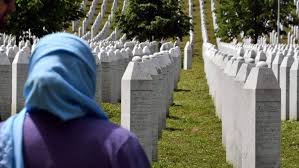The Council of the European Union (EU) will further reaffirm its commitment to enlarging the European family in December, which is seen as a key policy of the European bloc, but to do so, Western Balkan countries are asked to further engage in key reforms, especially those concerning and advocating the rule of law.
“Enlargement remains a strategic investment in peace, democracy, prosperity, security and stability in Europe. The EU Council reiterates that acceptance and commitment to core European values and European perspective is a strong strategic choice, essential for all partners seeking EU membership”, the draft EU conclusions read.
“In line with this, the Council still expects the partners to take the lead and fully commit to European values and demonstrate their political will by vigorously implementing the necessary reforms in the interest of their people”, the draft said.
EU general ministers will warn countries in the region that they need to focus on fundamental reforms to address a number of persistent structural shortcomings in the areas of rule of law, fundamental rights, strengthening democratic institutions and public administration reform, as well as economic criteria.
General Affairs Council will point out to pre-accession countries that the rule of law is one of the main challenges in the region, often correlated with a lack of political will, continuing elements of ‘captive states’ and shortcomings in judicial independence, institutional resistance and anti-corruption and organized crime, as well as an increasingly difficult environment for civil society. Ministers will say that all these issues should have the highest priority.
The EU Council is expected to call for further efforts to address the legacy of the past and foster reconciliation among countries, based on a climate of tolerance, inclusion and trust, with the strong participation of civil society.
The draft conclusions state that it is necessary to resolve all open issues, including bilateral border disputes between the countries of the Western Balkans, as well as issues of succession and remaining cases of missing persons.
EU ministers are expected to emphasize the importance of justice for war crimes victims, and underline the need for cooperation and full support for both the work of the International Residual Mechanism for Criminal Courts and the Special Councils headquartered in The Hague.




